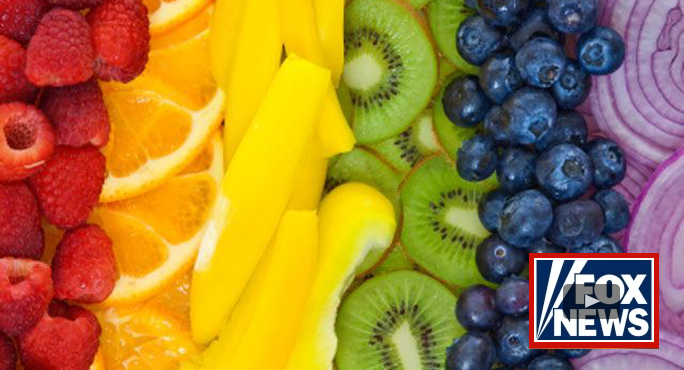Cick image above to watch “Foods that Hydrate the Body” on FOX News
Your body is more than 70 percent water and it’s very important to stay hydrated. But liquids aren’t the only way to get the hydration you need – Chris Kilham, the Medicine Hunter, tells us about some foods that will do the trick.
Even though it may not seem so, water is your body's principal chemical component and makes up about 70 percent of your body weight. Every system in your body depends on water. Water regulates body temperatures, eliminates toxins, carries nutrients and oxygen to the cells, and provides a moist environment for body tissues and joints. Our cells contain water, our tissues are water-rich, and our blood is mostly water.
We are constantly losing water. When we expire we release water with every breath. Urination and defecation also reduce our body water. And perspiration is another means of almost continual reduction of water from the body. Water loss is a means of detoxification, of eliminating unwanted compounds from the body. But we must replenish the water we lose, or tissues and organs will begin to dry out.
While drinking water, tea and other water-based beverages replenishes our body’s water content, eating hydrating foods will also perform the same function. According to the Institute of Medicine, 20 percent of your water intake comes from food sources. Many fruits and vegetables, such as watermelon, broccoli and tomatoes, contain 90 percent or higher water content by weight.
Fruit and vegetables contain 80 to 98 percent water. Eating dense vegetables such as cucumbers, jicama, beets, carrots or celery with a meal or snack is one of the easiest ways to improve your hydration. You know the crudite platters at parties? Think of them as water platters.
Watermelon, one of the most favored summer foods, contains more than 90 percent water with little input from carbohydrates and fructose from the pulp of the fruit, which has a very low caloric value. With its pleasant and mildly sweet flavor, watermelon satisfies your appetite while adding precious few calories to the diet.
The nutrient-rich leafy green vegetable chard consisting of a whopping 97 percent water when consumed boiled or steamed. Chard is a great source of iron, vitamins and minerals, and is a low-calorie food with major health benefits.
America’s favorite vegetable lettuce is ideal for eating fresh in salads and to fill our plates of food that does not increase the calories in the diet. Very low in nutrients and high in water, lettuce provides some fiber, vitamins and minerals. Its primary virtue is that is satisfies the need to feel full without adding any significant calories.
Containing 93 percent water and abundant in the protective antioxidant lycopene, the tomato is a very versatile food to add to any dish and give volume without adding calories or suffering hunger while losing weight.
Melons in general have a 92 percent water value and an intense sweet flavor that can replace unhealthy snacks. Melons are full of beneficial nutrients, with few calories and zero fat.
Remember that sodas are absolutely terrible sources of water, adding either loads of sugar or large amounts of potentially harmful chemicals to the body, while providing absolutely nothing of benefit. If you wish to live healthy, avoid sodas altogether. Stick with water, tea, and healthy fruits and vegetables, and you’ll receive all the hydration your body needs.


